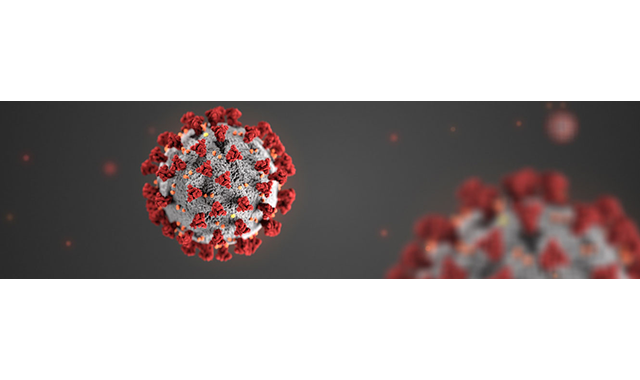Dental practices urged to close amidst Coronavirus outbreak
As the Coronavirus has spread around the world, more information has become available on what occupations are more likely to be exposed to the virus.

As the Coronavirus has spread around the world, more information has become available on what occupations are more likely to be exposed to the virus.
Dentists, hygienists, and dental lab technicians are among the professions most likely to be vulnerable to the Coronavirus (COVID-19), according to new articles published by the New York Times and Business Insider.
As such, governors and international organizations are urging dentists to close day-to-day operations and only take on emergency cases.
On March 14, Ohio Gov. Mike DeWine urged residents to cancel elective surgeries or procedures, including dental procedures. While no formal mandated ban on such procedures has been announced, the request is in part due to a shortage of face masks used by medical providers. Ohio currently has 50 confirmed cases of COVID-19.
This was followed by a statement on March 16 from the Ohio State Dental Board, which echoed DeWine’s recommendation that dentists cancel all non-emergency procedures in order to limit dental staff exposure to COVID-19. Elective procedures, such as teeth cleaning or anything that doesn’t relieve a patient’s pain, should be rescheduled, a statement from the board said.
The Virginia Dental Association followed a similar approach, unanimously recommending that Virginia dentists postpone non-emergency care for at least two weeks starting March 17.
“As dentists, we are in one of the highest risk categories for transmission and contraction of the Coronavirus, with many routine dental procedures having the potential to transmit the virus via aerosolization of fluids. As leaders in the healthcare profession, we are responsible for ensuring the safety of our citizens and for our dental teams,” the VDA statement read.
Managed care organization Kaiser Permanente will forego all non-urgent dental and medical procedures in Oregon and southwest Washington through the end of this month. Only emergency procedures or virtual appointments will continue. Kaiser anticipates reducing dental appointments by 75 percent and estimates that these measures will save approximately 100,000 masks and 250,000 gloves monthly. Kaiser added that it intends to take similar steps in the regions it covers, which include eight states and Washington D.C.
Internationally, the Royal College of Dental Surgeons of Ontario (RCDSO), the Order of Dentists of Quebec (ODQ), and the Order of Dental Hygienists of Quebec (ODHQ) have issued new guidelines that recommend all dentists suspend all non-essential procedures beginning immediately for a period of at least two weeks. The RCDSO said it will reevaluate this recommendation in the first week of April.
“The entire community is mobilized in order to contain this pandemic, and health professionals, including those providing oral care, have the obligation to participate in this collective effort. The goal of today's guidelines is to ensure that the needs of the public are met while reducing the risk of spreading the virus. It is our responsibility to do so, and we intend to rally all professionals and patients around these measures,” said Dr. Guy Lafrance, president of ODQ and Dianne Duval, president of ODHQ.
Dentists are ranked very highly on the New York Time’s study of workers who face the greatest Coronavirus risk, due to their physical proximity to patients and exposure to diseases.
Business Insider used the O*NET Online Occupational Database from the U.S. Department of Labor to determine the 47 “unhealthiest” jobs in America. Prosthodontists were ranked at number seven, dental assistants were number five, dental lab technicians were ranked fourth, general dentists came in at second, and dental hygienists were ranked first, based on BI’s scoring method.
There are nearly 3,500 confirmed cases and 68 deaths due to COVID-19 in the U.S. alone, according to the Centers for Disease Control. The novel Coronavirus is highly contagious and causes a respiratory illness that spreads from person-to-person contact or by touching infected surfaces.
How Dentists Can Help Patients Navigate Unforeseen Dental Care
December 12th 2024Practices must equip patients with treatment information and discuss potential financing options before unexpected dental treatments become too big of an obstacle and to help them avoid the risk of more costly and invasive procedures in the future.
How Dentists Can Help Patients Navigate Unforeseen Dental Care
December 12th 2024Practices must equip patients with treatment information and discuss potential financing options before unexpected dental treatments become too big of an obstacle and to help them avoid the risk of more costly and invasive procedures in the future.
2 Commerce Drive
Cranbury, NJ 08512
All rights reserved.